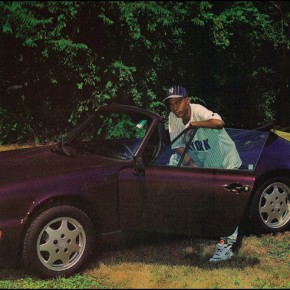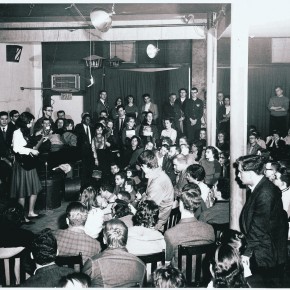
positively Mt. Auburn Street: Joan Baez and the Cambridge Folk Scene, 1958-60
The role of folk music in America’s postwar cultural and social history doesn’t lack for testimonies. Being the privileged soundtrack to the middle-class generation born during or just after the war, the story of how this music ‘changed the world’ won’t go unrecorded thanks to Baby Boomers’ economic and political hegemony. And yet the peculiar registers...
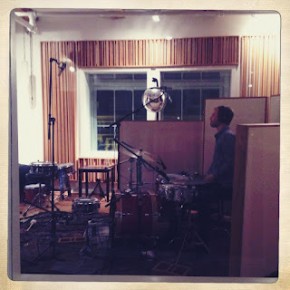
swimming in the music ecosystem: an interview with Scott Reitherman of Throw Me The Statue
Scott Reitherman is the singer, multi-instrumentalist, songwriter and main guy behind Throw Me The Statue, an indie-pop band based in Seattle. They have two albums out on Secretly Canadian, an independent label based out of Bloomington, Indiana, and are currently in the studio recording a third one. Their 2007 debut Moonbeams got a warm reception...
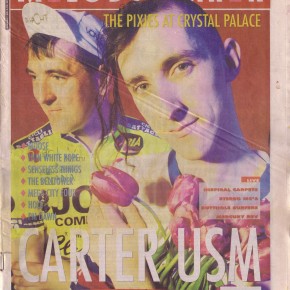
network southeast not SXSW: guest blog by Andrew Stevens
[Very pleased to feature Musical Urbanism’s first guest blogger, Andrew Stevens, a writer and researcher living in London. A Fellow of the Royal Society of Arts, Stevens is a Member of the Regional Studies Association and Urban Economics Association. -LN] I read about a band in South East 23, I thought it was me, I...
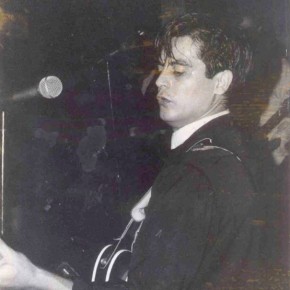
Tito Larriva: the hombre secreto of L.A.’s culture industry
As a central destination for musicians, actors, filmmakers and artists, Los Angeles has more than its share of unsung, forgotten or behind-the-scenes figures who have made a significant mark on the city in the course of their careers. In this category, one of my favorites is Tito Larriva, who readers might recognize if they review...
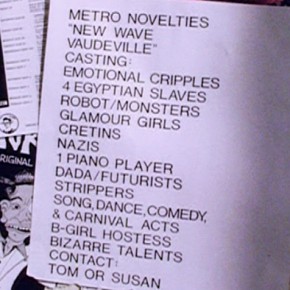
between champagne and eviction: more new wave rent party
My last post introduced an imaginary sub-genre that I call new wave rent party and covered the basics of its aesthetic principles and historic urban context. Here, I continue that discussion with some more material from 1977-81 era. Well, maybe a couple of years further on as well—the sub-genre went on a few more years past its historic sell-by...
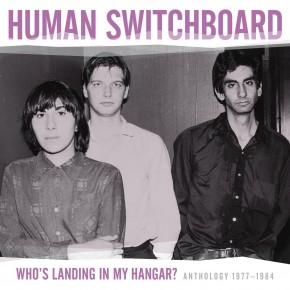
living the urban crisis at the new wave rent party
I recently downloaded the reissued Human Switchboard album, Who’s Landing in my Hangar? Anthology 1977-1984, which set me off again obsessing about a subgenre of new wave that I’ve never really seen recognized. I don’t even know how best to name this subgenre, although I’m convinced it has a musical coherence. I’ll call it new wave rent...
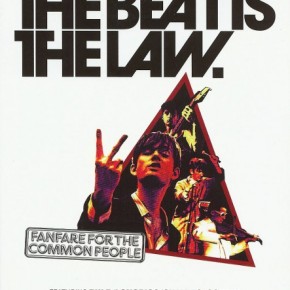
remembering the serious triviality of pop music
Something left unelaborated in my review of Echotone (from the last two posts: here and here) is a larger uneasiness with the instrumentalization of independent or underground music — the reduction of pop music culture from an end in itself to a means for other ends. Although this isn’t a new critique of post-punk music (i.e., music groups inspired...
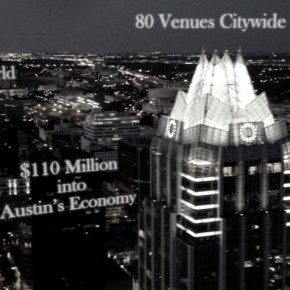
creatively exploiting the Austin scene: a review of “Echotone” (pt. 2)
[This is the second part of my review of the documentary “Echotone” (2010, dir. Nathan Christ). For the first part, go here.] Technically, no one in Echotone ever says the phrase “creative class.” However, the filmmaker’s marketing materials invoke it regularly, starting with the DVD’s back-cover description: “Echotone is a cultural portrait of the modern American city examined through...
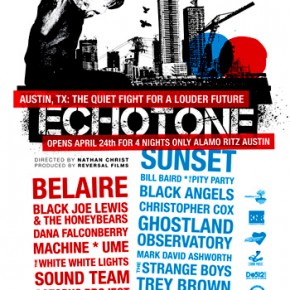
losing Austin’s weirdness: a review of “Echotone” (pt.1)
A 2010 documentary that just graduated from the film festival circuit to DVD,Echotone captures the Austin music scene at a moment of transition. The film is a pleasure to watch and listen to, with great photography, fantastic sound (plus great sound editing, not something I usually notice), and an effective yet easy-going narrative style mercifully free...

Pitchfork urbanism
The award for Fun Read of the Week goes to “On Pitchfork,” Richard Beck’s smart, caustic review of indie rock’s überblog Pitchfork. You can’t find this lengthy essay anywhere but the latest issue of n+1, an NYC-based journal of politics, literature and culture, and yeah it’s worth the $10 PDF download. (The issue also features a...
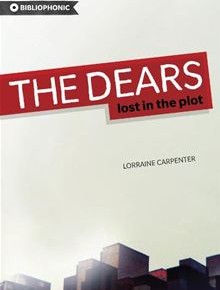
what’s local? a review of “The Dears: Lost in the Plot” by Lorraine Carpenter
Does it diminish a musician’s accomplishments to view them through his or her place of origin? Does the prism of the “hometown” assign the stigma of parochialism or, worse, artistic failure, implying that the musician never got out of the minor leagues, or never wanted to? Consider how we don’t find it fundamentally necessary to...

